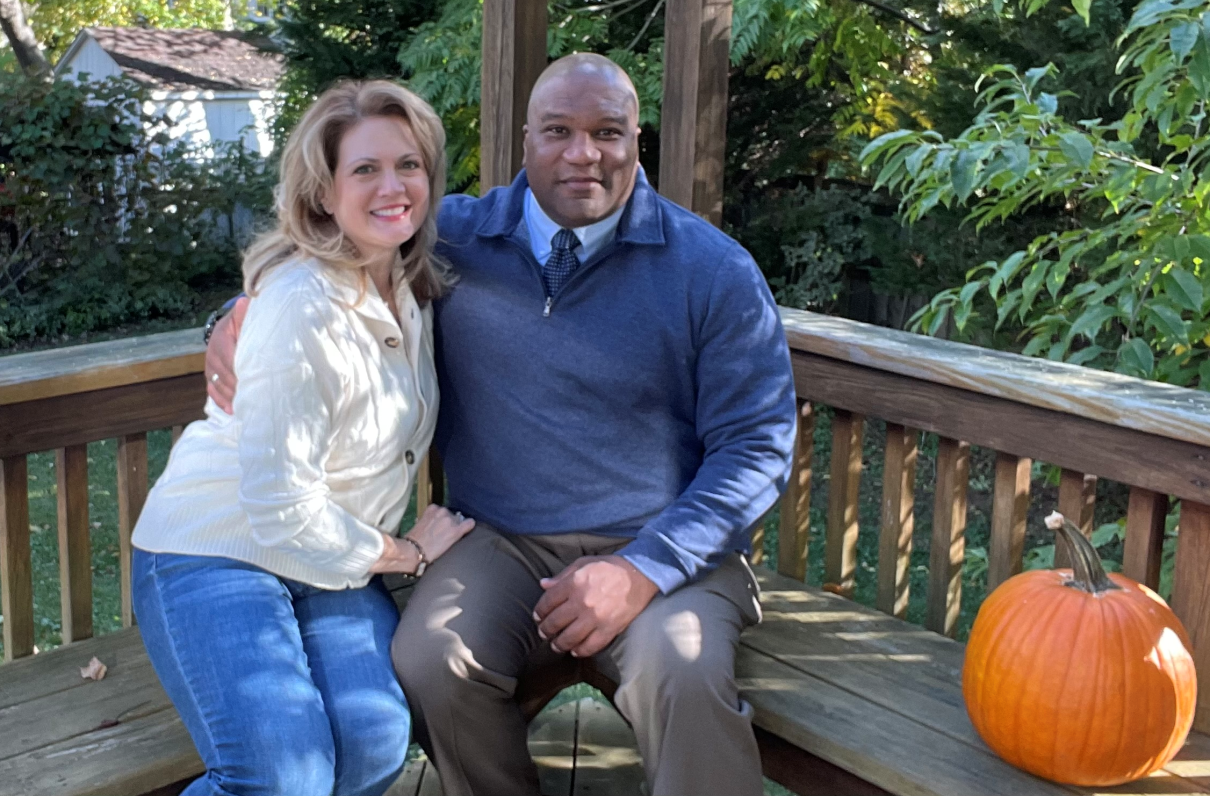Throughout my 20s, I was searching for the right profession. That decade was one of trial and tribulation, lessons learned, paying dues, and working hard for little pay. Not that it had to be that way, but I tried a lot of new things and sometimes had a bumpy transition; going from nonprofit work to real estate, for example, offered no stability.
Many jobs and seven careers later (seven!), I met my Marine Corps husband at age 30, and when we married, I perhaps naively didn’t feel concerned about future career opportunities. Little did I know.
Thanks to my years in the nonprofit arena, where I enjoyed the work but lamented the insufficient income, I started studying personal finance on my own. I read books and spoke to people in the industry, and eventually decided that’s where I was supposed to be.
As a financial professional and military spouse, I’m lucky that I could work anywhere in the U.S. All I needed to do upon a military transfer was pay for the financial licenses in my new state. That was the easy, technical part. The harder part, the time-consuming part, was building a network of peers, referral sources, and new clients. Sometimes I fared well and sometimes I didn’t. When did I flounder? Well, a few years in Tampa, Fla., spring to mind.
[RELATED: DoD Considering Full-Day Universal Pre-K for 4-Year-Old Military Kids]
We were in Tampa for nearly four years and had our youngest child there. With a newborn and the two older kiddos, ages 4 and 2, the days flew by with nary a thought to my financial business. I managed to maintain my licenses, do continuing education, and maintain existing client relationships. But cultivating a new client base eluded me.
Looking back now, I realize I was very hard on myself. I was probably exhausted, physically and emotionally. My husband wasn’t deployed for long time periods but he traveled often, coming and going. So I wasn’t entirely on my own, but the day-to-day responsibilities and decisions mostly fell to me. The days were a blur. I remember feeling anxiety and fear that I wasn’t building my business.
I did grow to understand something important. We military spouses take on so many tasks, projects, and goals that we take it for granted that we can do anything. But the reality is that a goal remains only a dream unless it’s put into action. And the action requires a set of criteria:
- Dedicated time to accomplish the goal.
- Steps to accomplish it. (How do you eat an elephant? One bite at a time.)
- Buy-in from your spouse.
- Child care.
- A mentor or support network.
- Reading/Self-improvement.
[RELATED: Spouse Licensure, School Policies Top DoD-State Liaison Group’s 2023 Priorities]
I discovered the term “deep work.” Deep work is setting aside a specific period of time, even just 30 minutes or an hour, to focus on your work without interruptions. When I had to study for a financial exam, I decided that for the three days before I took the test, I would only do the most basic necessities of caring for the kids, and study incrementally. I didn’t do laundry. I washed a few dishes, ordered food, and walked through a sea of toys on the floor that I’d ordinarily pick up. I remained focused. And yes, I passed the exam.
Deep work helped me realize I didn’t have to work eight hours a day to accomplish something. I could set aside a few hours a day and be productive. For me, one hour wasn’t enough; three was exponentially better. I added “Deep Work” to my phone calendar for two hours, three when possible, five days a week. I found that five days was an ambitious goal at the time (what if my child care fell through?), but two was a minimum. A key here is doing what you can, particularly when juggling children, house, spouse, pets, schools, holidays, weight loss programs, friend lunches, and that new term, “self-care.”
For many of my years as a military spouse, I felt out of place. I was older than twentysomethings, younger than baby boomers. I am a Generation Xer, caught between the boomers and millennials. I joined groups and clubs, attended networking events, happy hours and lunches, but often felt in between. Ultimately, though, I did realize that military spouses form an amazing community of people who want to help one another. Often, I needed assistance; sometimes I could give it. Sometimes your experience is enough, offering a perspective that helps others.
[RELATED: Need Help Juggling Your Family’s Savings Goals?]
I continued building my business, achieving a rate of success due to determination, several mentors, and building relationships. I read a lot, on topics ranging from business to goal-setting to health and wellness. Juggling the kids and their schedules didn’t get easier, but my time management skills did. I invested time in my time management, to become more efficient. I figured out technology hacks to help me perform as a proficient communicator.
Of course, earning an income has become easier for some who can work remotely. When unemployed, or just working to self-improve, there are free online courses. For example:
- LinkedIn Learning offers online courses free for the first month and $39.99 per month after that. For the first month, I crammed in several courses. To accomplish this, I put other things on hold and created a calendar to help me stay focused; I also shared the plan with my husband so he understood my timeline.
- Harvard Business School Online offers free video lessons.
- Many colleges offer online resources to alumni.
Now, 20 years after my husband and I met, I look back and know that I did the best I could, with the tools available to me. I’ll never forget the kindness of other military families – they brought meals, invited us on playdates, shared tips and tricks – who helped me on both the home front and career path. My professional journey encompasses all the challenges and adversities I’ve faced over the years.
Early on, I never dreamed that I’d be a military spouse who had to figure out how to keep a career going, sometimes on the fly. But I have no regrets. None at all.
Support Military Spouses
Donate to The MOAA Foundation and support MOAA’s efforts to help military spouses in their career journeys.

